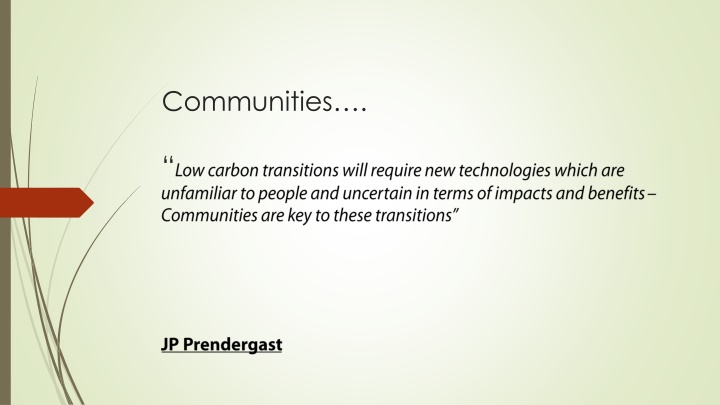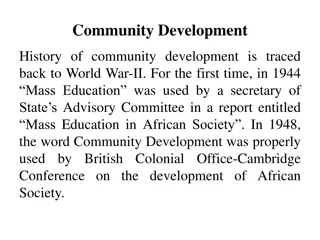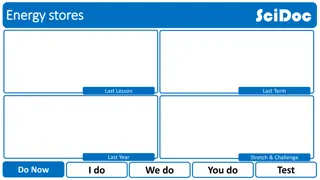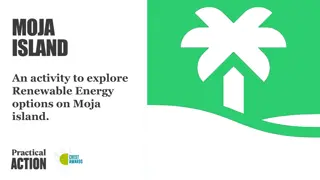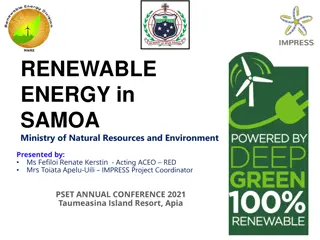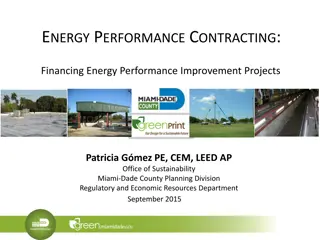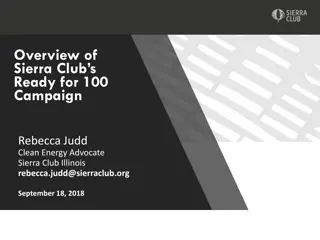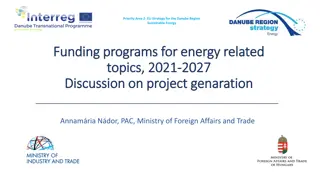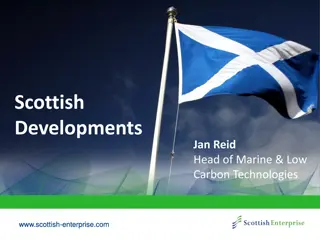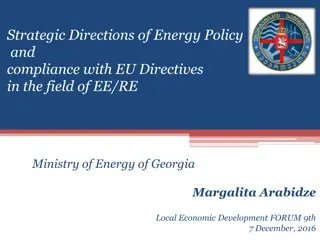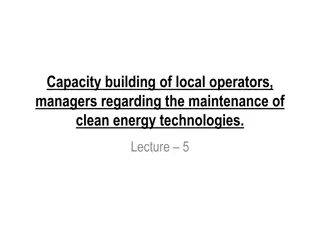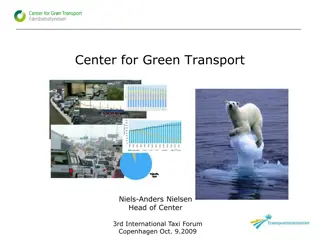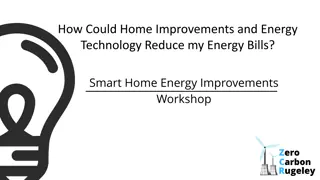Empowering Communities Through Sustainable Energy Initiatives
The journey towards community power and engagement is highlighted by initiatives promoting community energy ownership and renewable projects. Examples from Belgium, Germany, and the United States showcase the impact of community-led sustainable energy efforts. Community Power in Ireland is revolutionizing energy production by empowering local renewable energy producers and fostering a circular economy approach. Together, these endeavors aim to create a more sustainable and environmentally friendly energy future.
Download Presentation

Please find below an Image/Link to download the presentation.
The content on the website is provided AS IS for your information and personal use only. It may not be sold, licensed, or shared on other websites without obtaining consent from the author.If you encounter any issues during the download, it is possible that the publisher has removed the file from their server.
You are allowed to download the files provided on this website for personal or commercial use, subject to the condition that they are used lawfully. All files are the property of their respective owners.
The content on the website is provided AS IS for your information and personal use only. It may not be sold, licensed, or shared on other websites without obtaining consent from the author.
E N D
Presentation Transcript
The Journey so far.. Community Power Community Engagement
The government had put forward plans to restrict the right of community groups, non-governmental organisations, and citizens from taking legal action against developments around the country. Among the measures were that groups would have to be in existence for at least three years, have at least 100 members, be personally and substantially affected by a development, and have enough money to cover legal costs. 294 submissions received as part of a public consultation, a significant majority of which opposed the plans. a total travesty of the rights of citizens We must be careful not to allow a situation to develop where judicial review in effect becomes a de facto additional step in the planning process for strategically important projects.
Community Energy Ownership - Examples Belgium, a renewable energy co-operative, Ecopower, with about 50 000 members, supplies 1.5% of the households in the Flanders region with about 90 gigawatt-hours of renewable electricity from their own wind turbines, PV installations and small hydro. Members pay USD 0.22/kWh, compared with an average retail tariff of USD 0.29/kWh (Statista, 2017). The members also get a dividend of up to 6% per annum on their holdings In J hnde, a small village in Germany, a 700 kW combined heat and power plant using biogas was implemented under a co-operative structure. The plant meets 70% of the heating needs of the village and produces double its electricity demand. The excess electricity is fed back into the grid The community-owned utility in the village of Minster, Ohio, United States, has implemented a 3 MW solar project with a 7 MW, 3 megawatt-hour (MWh) battery storage system. The project has resulted in savings of USD 1 million per year for the community
Community Power are a partnership of community energy groups working for a sustainable energy future for Ireland. The group grew out of Ireland s first community owned wind farm and now are working with Irish communities to develop more renewable energy projects owned by people! Community Power looks to empower small-scale local renewable energy producers and revolutionise the way energy is produced. This community generation takes into account the interests of community-based renewable energy producers, or prosumers , like a small group of village-owned wind turbines, community owned AD plants or rooftop solar panels. The circular economy, which promotes the elimination of waste and the continual safe use of natural resources, offers an alternative, working with net zero carbon, transitioning to the Paris agreement, working with the farming communities, food processing communities and sustainable energy communities. Community Power Then to now!
Renewable Electricity Support Scheme A State initiative to incentivise the production of renewable electricity It has an auction based format For the production of specific quantities of wind & solar electricity For a specific time usually 15+ years At a set price (successful bids) with conditions etc Introduced in 2020 (RESS-1), and expected to run for 4-5 years The annual RESS auction has two sections/pots Community pot 1% of total less onerous conditions Developer pot 99% of total more onerous conditions 2019 AUCTION RESULT RESS-1 Auction Results 68 projects - 114 applications 18 onshore wind projects 50 solar projects 7 community projects (2 wind, 5 solar)
The government had put forward plans to restrict the right of community groups, non-governmental organisations, and citizens from taking legal action against developments around the country. Among the measures were that groups would have to be in existence for at least three years, have at least 100 members, be personally and substantially affected by a development, and have enough money to cover legal costs. 294 submissions received as part of a public consultation, a significant majority of which opposed the plans. a total travesty of the rights of citizens We must be careful not to allow a situation to develop where judicial review in effect becomes a de facto additional step in the planning process for strategically important projects.
Community Power in collaboration with the RGFI are presently working with over 70 Sustainable Energy Communities. Community Power presently sit on the Steering Board of Expert Guidance
NEXT STEPS Community AD Support/Ownership Community Engagement To promote European Led Funding Programs involving Community To develop funding progams similar to RESS for Community Owned AD To influence policy including lobbying Enable Framework Inputs Financing for Community AD Projects Establish Trusted Intermediaries/Advisors How To supports Community Engagement National/EU To promote education and awareness through information programmes/awareness sharing To promote involvement and participation To promote the wider Circular Bio-Economy models incorporating AD Continue to work with the EU to agree community participation as an integral part of installing new renewable energy and a route for community participation in the projects. Community Power Nationwide to promote & protect the interests of the 100% community owned generation projects to protect the energy community pot for these communities to influence policy including lobbying when and where appropriate.
Including people and communities in the design, planning and implementation of the transition to zero carbon societies is not simply the fairest approach. It will also be the fastest . Thank you
